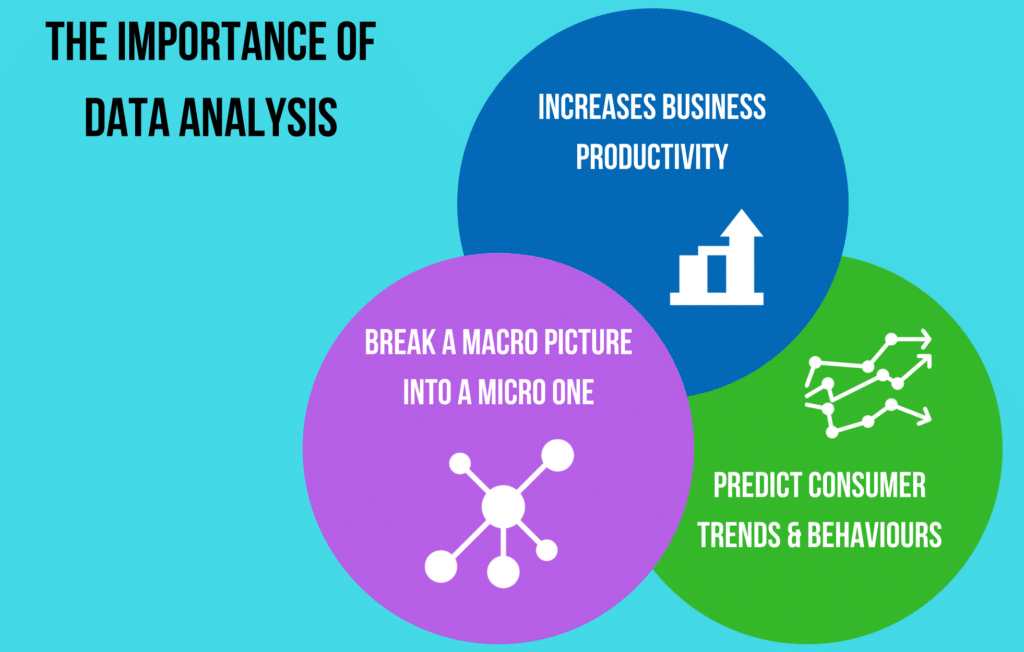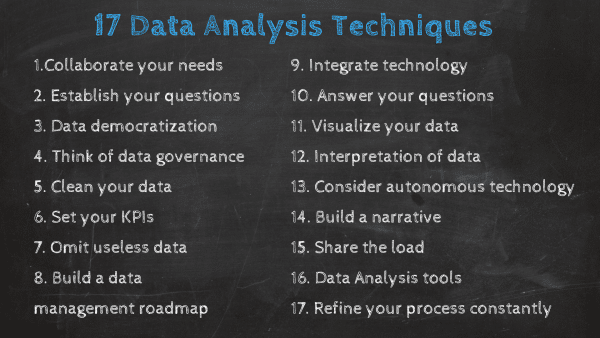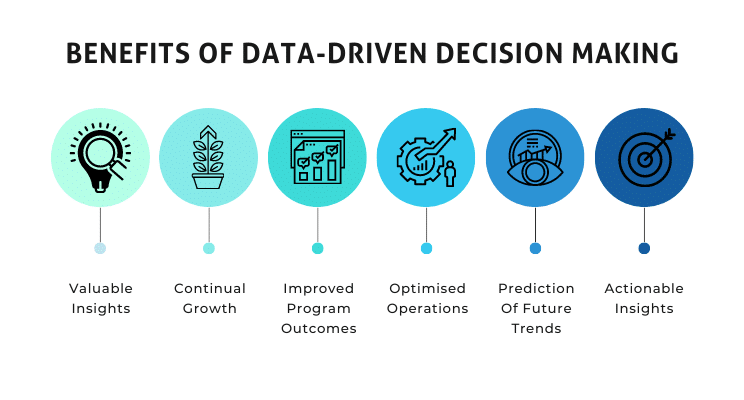Introduction
Data-driven decision-making stands as a cornerstone in modern business strategy, where data analysts play a pivotal role. Their insights and analyses are crucial in steering organizational strategies and operational tactics, ensuring that decisions are grounded in solid, empirical data.
Data analysts transform raw data into actionable insights, bridging the gap between vast data sets and strategic business decisions. By interpreting trends, patterns, and statistical evidence, they empower leaders to make informed choices, optimizing performance and driving competitive advantage in an increasingly data-centric world.
The Crucial Role of Data Analysts

Data analysts serve as the linchpin in the data-driven decision-making process. They sift through mountains of data to extract meaningful insights, employing statistical methods and predictive models to inform and guide business strategies. Their work underpins the strategic decisions that drive growth, efficiency, and innovation within organizations.
Data Quality’s Impact on Decision-Making
The foundation of effective decision-making lies in the quality of data. Data analysts emphasize the necessity of high-quality, accurate data, as the conclusions and insights derived are directly influenced by the data’s integrity. They engage in meticulous data cleaning and validation to ensure the reliability of their analyses.
Analysts often face challenges such as incomplete datasets or inconsistent data formats. Overcoming these obstacles is essential to provide accurate and actionable insights, necessitating robust data governance and quality assurance practices.
Techniques and Tools for Data Analysis

Data analysts utilize an array of techniques and tools to dissect and interpret data. From employing advanced statistical methods to leveraging software like Python or R, they extract valuable insights that can significantly influence decision-making processes.
The choice of tools and techniques is often dictated by the specific needs of the analysis, whether it’s real-time data processing, predictive modeling, or complex data visualizations, ensuring that analysts can provide tailored insights that directly address business questions.
Navigating Challenges in Data Analysis
Data analysts often encounter various challenges, from dealing with vast data volumes to addressing the rapid pace of data generation. These challenges require not only technical expertise but also strategic thinking to ensure that data analysis remains timely, relevant, and impactful.
Analysts must also navigate the complexities of integrating data from disparate sources, ensuring consistency and accuracy in their analyses. This often involves sophisticated data integration techniques and a deep understanding of the data landscape.
Real-World Impact: Case Studies
In healthcare, data analysts have revolutionized patient care by analyzing trends and outcomes, leading to more personalized and effective treatment plans. Similarly, in finance, their predictive models have helped institutions anticipate market changes, manage risks, and identify new investment opportunities, demonstrating the versatile and transformative power of data analytics across various industries.
- Through detailed case studies, the tangible impact of data analysts on business success is highlighted. For instance, in the retail sector, data analysts have enabled companies to optimize inventory management and improve customer satisfaction through targeted data-driven strategies.
The Future of Data-Driven Decision-Making

The evolution of data-driven decision-making is set to redefine industries, as emerging technologies like AI and machine learning become more intertwined with data analysis. This integration promises to unlock unprecedented levels of efficiency and insight, enabling data analysts to provide more nuanced, forward-looking perspectives that can guide businesses through complex, rapidly changing landscapes.
- The future of data-driven decision-making is intrinsically linked to advancements in technology, particularly in areas like AI and machine learning. Data analysts are at the forefront of integrating these technologies into analytical processes, enhancing the predictive power and depth of insights.
- As the volume and variety of data continue to grow, analysts will play a key role in harnessing this information, driving innovation, and creating new opportunities for business optimization and strategic differentiation.
As organizations increasingly rely on data to inform their strategies, the role of the data analyst will become more central, acting as a catalyst for data-centric innovation and a driver of future business success.
Cultivating a Data-Driven Culture
Building a data-driven culture is essential for maximizing the value of data analytics. This involves not only the technical aspects of data analysis but also fostering an organizational mindset that values and utilizes data at all decision-making levels.
Encouraging a data-driven culture requires leadership commitment, continuous training, and the democratization of data access across the organization. By empowering employees with the tools and knowledge to leverage data in their roles, companies can enhance decision-making processes, foster innovation, and maintain a competitive edge in their industry, ensuring that data-driven insights are at the core of their strategic initiatives.
Conclusion
The insights provided by data analysts are invaluable in the realm of data-driven decision-making. Their expertise enables organizations to navigate the complexities of today’s data landscape, driving informed decisions that foster innovation and strategic growth. As data continues to be a pivotal asset, the role of data analysts in shaping the future of businesses is more critical than ever.



